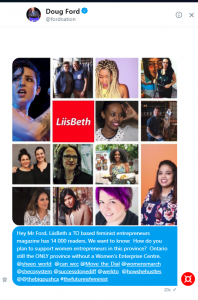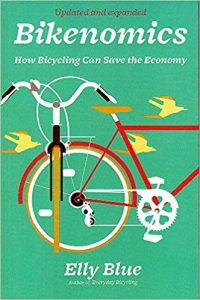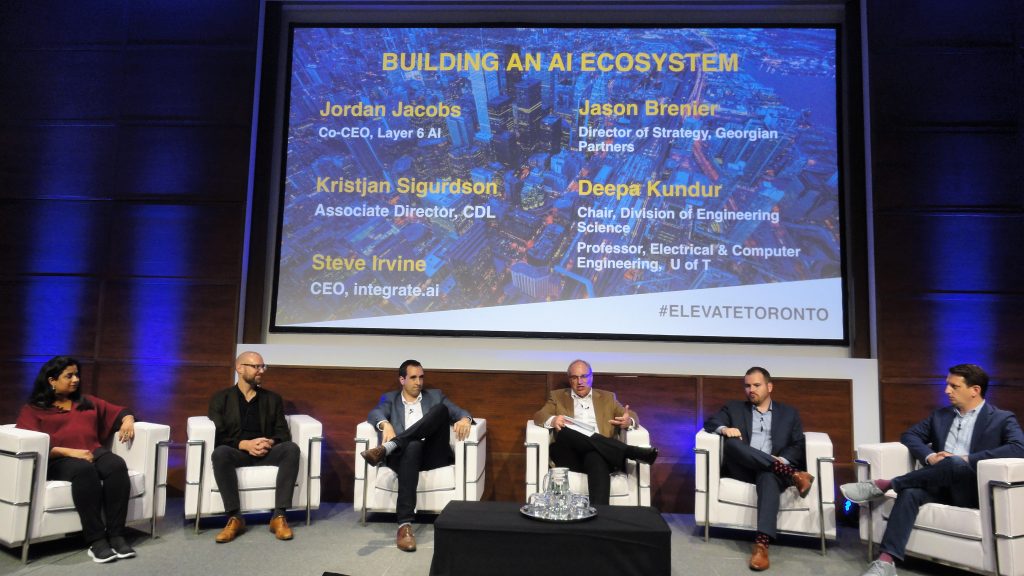The post LIISBETH DISPATCH #42 appeared first on LiisBeth.
]]>
VIEWPOINT
Aren’t Anti-Feminists Feminists Too?
At first, I had to do a double take. Did I read that right?
In an article titled “Liberals Accused of Using Feminism as Political Weapon,” Rachael Harder, a Conservative critic for the Status of Women and former successful dog kennel entrepreneur in Lethbridge, Alberta, complained that Prime Minister Justin Trudeau and his Liberal government were—get this—hogging feminism.
If you read the rest of the piece published in the Ottawa Citizen on May 7, you essentially learn that she is concerned the Liberals are doing too many good feminist things, leaving little room for those who define feminism differently. For example, “feminists” who are anti-abortion, don’t believe the pay gap exists, and believe equality is possible without also addressing equity.
Can a word mean anything you want it to mean?
These days, it would appear that the Progressive Conservatives (Canada’s official opposition party) are noticing that aligning one’s identity with feminism gets votes, and they desperately want access to some of that firepower. Some, invoking the Humpty-Dumpty principle of definitions, are suggesting that how one defines feminism is a matter of personal choice. Translation: even anti-feminists are feminists too. #AllFeminismsMatter
If you were old enough to watch the ERA debate unfold in the media in the 1970s, this attempt by anti-feminists to hijack feminism is probably making you feel like you just ate a bad brownie and saw Rod Serling sit next to you holding a cigarette.
Next stop, the Twilight Zone. Even Phyliss Schlafly, North America’s iconic and proud-to-be conservative anti-feminist who mobilized conservative women and successfully blocked the passing of the ERA amendment, is probably rolling over in her grave.
What is additionally odd about watching Canadian political candidates—and even corporate leaders of all stripes and genders—scurrying about to also be known as feminists is that, until recently, the very term was considered the other “F” word. To call yourself a feminist threatened your career and could clear the room like a bad smell. Several polls from that dark pre-2015 era showed that only a minority of Canadian women (ranging from 10 to 32% depending on the survey) and even fewer men identified as feminists.
But here we are just three years later and people are actually lining up to be pinned a feminist as though it’s an Order of Canada being bestowed. One survey even shows that today, there are more men identifying as feminist than women in Canada.
Think about that for a moment.
It’s great that the word feminism has been suddenly embraced by so many, so fast. But reductively, I say shame on thinly veiled opportunists looking to reduce, redact, and reframe a living movement whose proponents were, not too long ago, roundly vilified and socially punished, just to win today’s vote or sell products.
Some women died fighting for women’s rights. Thousands more died because they didn’t have rights at all.
Feminism. Not Just a Word.
Feminism is a 200-year-old movement justice and rights-based movement and here’s the kicker-an enormous body of work that, when translated at a societal level, imagines a safer, more inclusive world that can only be made possible by fundamentally eradicating gender inequality. There are many pixel level undertakings that make up its colourful landscape, but there is undeniably one shared photo of the goal.
Then as now, feminists of all genders across the globe continue to work hard to challenge, replace, and evolve systems and cultural beliefs that reinforce all forms of gender-based oppression. They are guided by a shared set of values that prioritize gender equality and equity, generosity, inter-independence, economic inclusion, intersectionality, and most importantly, agency.
The latter is key and implies a woman’s control over her own body, health, and right to determine her future.
If the candidate in your area, or anyone for that matter, doesn’t respect or speak about any of this, they ain’t a feminist. Don’t be conned.
THIS WEEK ON LIISBETH

When You Need Help As An Entrepreneur, Who You Gonna Call?
Feminist entrepreneurs with advancing enterprises are looking for two things: 1) help! and 2) the opportunity to support women-led enterprises that can provide that help.
That is where serial feminist entrepreneur Katrina McKay comes in. Her new enterprise, Uplevel Solutions, is an outsourcing enterprise for entrepreneurs. Think TaskRabbit, but with fair wage practices and a trained female staff that makes outsourcing hassle free. You can learn more about Katrina and how to level up here.

What Makes An Event a Feminist Event?
Event planning for the fall is in full swing for many activist entrepreneurial feminists. So the timing is right to ask the question: what makes an event a feminist event, that is, other than the subject matter or the nature of the community that gathers?
In this months’ refresh, co-producer of the Entrepreneurial Feminist Forum and our newest contributor, Lex Schroeder (pictured above), noted five feminist event design practices that worked. Schroeder shares her insights and experiences here.
The 2018 Entrepreneurial Feminist Forum will be held on Sunday, December 2 and Monday, December 3, 2018 at Daniels Spectrum, 585 Dundas Street East, Toronto, ON. Save the date!
FIELDNOTES

Off the Radar: A Special Report by LiisBeth for YOU!
Back in March, we set out on a quest to create a list of active women and other gender minority entrepreneurship support clubs, meetups, investor groups, and networking bands that do not currently exist on other mainstream lists. Why? Because here at LiisBeth, we receive inquiries every day from women and feminist entrepreneurs of all genders about where they can find support for ventures and startups that don’t fit the dominant mould of startups that are typically male-led, low-cap, extreme growth, or flip-it-to-make-it-oriented, which get most of the attention in today’s mainstream entrepreneurship ecosystem.
The good news is that this is changing thanks to dozens of initiatives by activist women entrepreneurs and investors looking to support and grow high, multi–bottom line alternative innovations and ventures. In a few short days, we were able to list over 100 amazing groups working across Canada to help entrepreneurs.
You can get a copy of the summary report here.
If you would like to download the Excel spreadsheet or add/edit the list, please visit our Excel spreadsheet on Google Docs here. Tell us and the LiisBeth community that you exist!
And if you appreciate the work that we are doing to surface the feminist and women’s entrepreneurship community, please consider donating $3, $7 or $10 a month via Patreon or our subscribers’ page. It will help us do even more!
The Ontario Election: Who to Vote For?
Last week, Toronto’s NOW Magazine called the election a “crapshoot.” And while all three candidates have legitimately icky unelectable baggage piled high on their backs, there are three questions that LiisBeth suggests you consider before heading to the polls:
-
Which candidate genuinely cares about advancing gender equity, inclusion, and innovation in this province?
-
Which candidate would you at least even mildly enjoy being stuck in an elevator with for four hours?
-
Which candidate even mentions advancing equity for Ontario women, and specifically women entrepreneurs in his or her campaign/platform?
To find out what initiatives, if any, each party has documented in its platform for the advancement of women entrepreneurs, we made the effort to reach out and ask.
The first to respond was Kathleen Wynne’s campaign team. And in less than an hour, they sent us an entire document—hot off the press! You can find it here.
Highlights for women entrepreneurs include the creation of an Ontario Women’s Entrepreneurship Association to increase women’s access and opportunity to scale up and expand ventures, and $500+ to support additional women entrepreneur programs and the advancement of entrepreneurship opportunities for girls in high schools. The document also highlights new investments in child care, elder care, and ending gender-based violence. Andrea Horwath’s NDP government is also committed to investing in child care and Ontario women.
To find out what the Progressive Conservatives, aka Ford Nation (led by Doug Ford), is planning for women, we decided to ask him directly via Twitter (see below) as he has yet to release a platform. We have not heard anything from Ford Nation yet (24 hours later), but let’s give them more time. At the moment of writing this newsletter, Ford has yet to reveal or articulate his platform, but we have some idea of how he views women’s rights by reviewing articles and his voting history.
As of today, we could find no up-to-date, post-March articles or news on Doug Ford’s initiatives related to women entrepreneurs—or women at all.

What about the NDP? We know Horwath is also committed to investing in child care in Ontario but were unable to find information regarding the party’s initiatives related to women’s entrepreneurship on its platform website. We did, however, find an initiative to revitalize the horse racing sector. Cool. But #odd
In our opinion, the Green Party and its leader Mike Schreiner would likely win question #1 and the “stuck in an elevator” question most of the time for a lot of people. Being stuck in an elevator with him might also be the only way we get to hear him talk given his unfortunate exclusion from the televised debate.
The Greens are often thought of as just a pro-environment party, but the Ontario Greens these days are smartly positioning themselves as a pro–social enterprise, triple–bottom line party. Uniquely, they support the introduction of a hybrid for-profit and non-profit legal form (like the U.S.-based Benefit corporation option). Like the Liberals and the NDP, they also support expanded child care and elder care support plus strategies to advance pay equity. At present, they do not have a specific program laid out for the advancement of women entrepreneurs.
Well, that’s our roundup regarding each party’s plans for women entrepreneurs. And if you feel there is any bias in our report, we admit that there is. #AnyoneButDoug
Now it’s up to you to go and vote.

Make Lemonade
In April, LiisBeth checked out Make Lemonade, the newest inclusive-yet-women-centred co-working space in Toronto, which opened in September 2017. The space was founded by Rachel Kelly, a 26-year-old Toronto gig economy entrepreneur who saw the growth in gendered co-working spaces as a promising new venture opportunity.
The space is fun, airy, and light. Its offerings are similar to co-working spaces in town. And the good news? It doesn’t exude that misguided “girl boss” sorority brand concept (unlike WeWork’s The Wing, a women’s co-working social club that opens in Toronto later this year).
As with all these spaces, it’s really not the decor or yoga classes that count, it’s about who’s in those spaces, the vibe, and the reflection of values held by the people who founded, occupy, and animate the space.
To see if Make Lemonade is your scene, check it out for yourself by signing up for a tour here.

Feminism and AI (Artificial Intelligence)
Meet Dr. Parinaz Sobhani (above), director of machine learning at the University of Ottawa and LiisBeth’s latest feminist-woman-in-tech crush!
Iranian-born Dr. Sobhani was the keynote speaker at the launch of Inspiring Fifty, a new award established in Canada to celebrate inspirational female role models in tech and innovation. Her talk, “Importance of Diversity in AI,” was both chilling and a call to action.
While the technology can overcome gender bias and risk of misused data, it will take the will and vigilance of humans to ensure that it does. We need a feminist-leaning watchdog organization in Canada.
Interested in being part of an initiative to start one? Email us and mention AI Watchdog in the subject line.
To hear part of Dr. Sobhani’s speech, click on the approximately seven-minute audio file here.

LiisBeth Is Hiring!
Eeek! Our little feminist media startup is growing so we need a little more help.
We are currently looking for a three- to six-month contract freelance newsletter editor. Ideally, the newsletter editor will be someone with exceptional writing, critical thinking, and research skills, have a women’s studies, journalism, or gender studies background, plus demonstrated familiarity with WordPress, MailChimp, and Canva or Adobe Photoshop. The workload is anticipated to be about 10 to 20 hours per month (less in the summer). The pay is $40/hour.
Since we have begun, we have published more than 125 articles, 37 newsletters, and provided fair wage income opportunities for more than 35 feminist-leaning freelance writers, editors, illustrators, and photographers.
Lots of groups are working on moving the dial for women. But we go beyond that. As a feminist organization, we work for economic, social, and political systems change. As a community of feminist entrepreneurs, we work to drive change through the power of entrepreneurship and innovation.
For more on our work and impact, you can download LiisBeth’s 2017 Impact Report. The job description is available here.
Preference will be given to applicants who actually read this publication. Duh.
If you are interested in joining our community in this capacity, please e-mail your resume and link to best writing examples to [email protected] by May 15, 2018.
WHAT WE’RE READING

This book covers important issues facing Indigenous people: violence against women, recovery of Indigenous self-determination, racism, misogyny, and decolonization. This new edition also covers Indigenous resurgence; feminism amongst the Sami and Aboriginal Australians; neo-liberal restructuring in Oaxaca; Canada’s settler racism and sexism; and missing and murdered Indigenous women in Canada.

Okay, so the City of Toronto and Google’s Sidewalk Labs organization are working on designing an amazing new Jetson-like district on the Toronto Waterfront in an effort to explore what the city of tomorrow might actually be like. At present, the vision includes driverless cars. Once you read Elly Blue’s Bikenomics, you will soon be wondering why any vision of an urban future has to include cars at all.
AND FINALLY…IN CASE YOU MISSED IT!
- This month’s uncommon find? Check out Feminist Economics Yoga, a fusion of yoga, capitalist, and feminist economics taught by Cassie Thornton, a yoga instructor, feminist thought leader, and activist artist from Thunder Bay, Ontario. According to Thornton’s website, she teaches kundalini yoga while also instructing students on issues related to money, debt, race, gender, and class. You can read her article over at Guts Magazine.
- Kelly Diels, a Vancouver-based feminist marketing guru (our word, not hers) writes in her last newsletter: “For a long time, I’ve been encouraging the people I write for and the authors and entrepreneurs I work with to share what they truly know—even when it’s polarizing.” Despite its challenges, Diels believes you can succeed. Most of us know first-hand that mixing business with feminist systems change work is dicey stuff. Succeeding requires unique insight—and Diels has this in spades. If you are not following Diels’ newsletter, you are missing out.
- The new anti-harassment Bill (C-65) is in its final stages. As a feminist entrepreneur, it is important to be up on the facts and the discussions. It’s not perfect, but its good. You can read the latest point of view on the bill (published by CUPE) here.
CAN’T MISS EVENTS
Black Women in Tech
Saturday, May 19, 2018
2:00 PM–4:00 PM
Bitmaker
220 King Street West, Unit 200, Toronto
Cost: By Donation
I Love You Mary Jane: Women, Weed and Wellness
Wednesday, May 30, 2018
7:00 PM–9:30 PM
Shecosystem Coworking + Wellness
703 Bloor Street West, Toronto
Cost: $20. Register here.
Startup & Slay: Panel & Meetup With Diverse Female Entrepreneurs
Wednesday, May 30, 2018
6:00 PM–9:30 PM
Spaces
180 John Street, Toronto
Cost: $45-50. Register here.
Financial Planning for Entrepreneurs: Learn About Cash Flow Management
Wednesday, May 30, 2018
10:00 AM–11:30 AM
Verity Club
111D Queen Street East, Toronto
Cost: $15. Register here.
The Big Push Expert Series: Best Hiring Practices to Increase Diversity and Inclusion in the Workplace
Thursday, May 31, 2018
6:30 PM–9:30 PM
Uberflip
370 Dufferin Street, Toronto
Cost: $15–$250. Register here.
Walking Your Why: Discovering Your Values Perspectives
Thursday, June 14, 2018
6:00 PM–8:00 PM
School for Social Entrepreneurs
720 Bathurst Street, Toronto
Cost: $0-50. Register here.
That brings us to the end of our May newsletter. The next newsletter is scheduled for late June 2018. In the meantime, follow us on Twitter, Tumblr or Facebook for updates, news, and provocative views.
You can also watch for new feature articles on feminist outsourcing plus more this month at www.liisbeth.com.
If you are looking for an easy way to support feminist entrepreneurs, look no further than considering a subscription to LiisBeth! We humbly remind you that subscriptions are $3/month, $7/month or $10/month.
If you would like us to promote your event, we are happy to do so if it suits our readers’ interests! It’s free for current subscriber donors; for non-donors there is a one-time donation of $25 per listing.
We accept PayPal and credit cards. And we also now have a Patreon page!
Funds go directly towards paying writers, editors, proofreaders, photo permission fees, and illustrators. LiisBeth needs your love—and financial support.
In the meantime: stay bold, be safe.

Petra Kassun-Mutch
Founding Publisher, LiisBeth
The post LIISBETH DISPATCH #42 appeared first on LiisBeth.
]]>The post How To Achieve True Diversity At Conferences? Embrace Discomfort appeared first on LiisBeth.
]]>
On day two of Elevate Toronto, Deepa Kundur, the lone woman but easily the most heavily credentialed expert speaker on a panel of six, sat on a stage in front of a welcoming, mostly male audience of 200. The session titled “Building an AI Ecosystem” lasted for 45 minutes. Kundur spoke for approximately five.
The event was part of Elevate Toronto’s inaugural three-day tech conference touting diversity and inclusion and it promised a “diverse” panel to explore how AI will change the future of work and life. This panel featured the usual: five white men. And there was Kundur, a South Asian woman who also happens to be the chair of the engineering science division at the University of Toronto.
When questioned by the male moderator, Kundur offered a thoughtful response to a knee-jerk comment about a young woman planning to skip university and join a startup directly because she wanted to “do what I want to do” and “university is not going to teach me the tools I want to know.”
After the audience’s muted laughter died down, Kundur spoke: “It’s easy to learn tools. But it’s not easy to build character and be educated about the responsible use of AI. I think character is important and is becoming a very important consideration in building an AI ecosystem. This is going to create stability. It’s important to get out of our comfort zones to develop character.”
It’s fair to say that Elevate Toronto, while promising to promote diversity and inclusion, stayed well within its comfort zone. One attendee, Janice Sousa, vice president of business development at Merit Travel, expected to hear challenging discussions, like how leading tech companies in Toronto are using diversity and inclusion as a lens to work through; honest examinations of the ethical implications of AI; and how the negative implications of AI can be countered.
Needless to say, Sousa left disappointed. “It was more a celebration as opposed to the work to be done,” she said.
By the end of day two, even Elevate Toronto’s CEO Razor Suleman was admitting the conference came up short of its mission. “I don’t think we did a good enough job of finding the champions of diversity.”
Who might those champions of diversity be? And had those champions been invited to Elevate Toronto, what would they have contributed to the conversation?
Kathryn Hume, vice president of product and strategy at Integrate.ai and panelist at Elevate Toronto, had some suggestions: Joelle Pineau, who co-directs the Reasoning and Learning Lab at McGill University; and Fei Fei Li, director of Stanford University’s Artificial Intelligence Lab. “That’s just a few women, but these are leaders in the field,” says Hume.
Pineau champions the cause of making AI mature. One of the biggest challenges she tackles is the lack of diversity in AI not just in terms of gender, but also demographics, social backgrounds, and cultural communities. The lack of diversity creates narrow AI ecosystems, arguably like those on display at Elevate Toronto.
Renowned AI researchers Fei Fei Li and Olga Russakovsky at Princeton University spearheaded the creation of SAILORS (Stanford Artificial Intelligence Lab Outreach Summer), a program devoted to increasing financial and cultural diversity in AI. Its junior achievers program focusses on the growth and education of ninth graders by providing them with hands-on AI experience and mentorship. Research shows that the ninth grade is when students are most likely to think seriously about their college majors and their impact on the world.
Deborah Rosati, a corporate director for Sears Canada and the co-founder and CEO of Women Get On Board, is another diversity expert who wasn’t invited to speak at Elevate Toronto. Her area of expertise is corporate governance in the AI startup culture. “AI companies need to have a longer-term view when building boards and structures,” says Rosati, who was recognized by the Canadian Board Diversity Council on its 2014 Diversity 50 list. Often consulted by tech companies on how to build diverse advisory boards, she says these requests often lack foresight and they’re based on an immediate requirement to fill a short-term need. Consideration of issues like sexual harassment and lack of gender diversity are fundamental to AI talent acquisition, and therefore, discussions of it would have to begin at ground zero: the development of long-term AI governance and ethics structures. “It’s a sexy thing to have an .ai domain name. But the field is evolving very quickly, so no one knows what the end game is.” She says long-term governance and ethics committees need to be in place to identify gender gaps in existing tech boards to build teams that are diverse in skills, geography, gender, and accessibility.
To underline Rosati’s point, Osler Law’s 2017 Diversity Disclosure Practices reported that the percentage of women directors at TSX-listed companies moved at a “glacial” pace from 12% in 2015 to 14.5% in 2017. The technology sector lagged even further with only 9% of its governance represented by women directors.
Elevate Toronto had positioned itself as a leading space in the AI revolution in Toronto, which should have entailed not only looking at new discoveries and algorithms but how those innovations impact future unemployment, inequality in wealth distribution, and humanity itself. That consolidated approach to AI would require interdisciplinary panels comprised of sociologists, psychologists, anthropologists, ethicists, economists, and law makers, in addition to the usual suspects, computer scientists and deep-learning experts.
On that note, some Elevate Toronto panelists, such as Gary Bolles, came across as positively entitled.
Tracey White, a Toronto-based senior HR professional and economist, participated as an audience member and could not believe what she heard when Bolles, who writes and thinks at the intersection of disruptive trends, offered advice to displaced workers in the American manufacturing industry. “Bolles called these people negative externalities,” says White. “It’s as if he means that we should all build lucrative tech businesses and maximize shareholder value while broad swathes of the American population, who have lost their jobs to AI and living in trailer parks, can just be discarded as negative externalities. That kind of thought is unacceptable.”
Bolles is heir to the fortunes of his father, Richard Bolles, who wrote the bestselling career counselling guide, What Color Is Your Parachute? His advice to unemployed workers in the American rust belt who had been displaced by AI automation was more lead balloon, telling them to pull up their bootstraps and become life-long learners by hiring coaches. The rest of the panel did not question him on the socio-economic—or political ramifications—of his off-hand statement. Angry and despairing, those so-called “negative externalities” in the rust belt heard Donald Trump’s promise to bring back their manufacturing jobs and helped make him president.
Perhaps more diverse panels would have challenged Bolles, or challenged Elevate Toronto’s celebration of tech innovation, which too often glossed over the warts and blind spots. As tech thought leaders Elon Musk and Stephen Hawking have increasingly been pointing out: technology is not benign.
But there’s always next year. As Julie Hanna, a leading Silicon Valley tech entrepreneur and Elevate keynote speaker, says, “Elevate is a profound opportunity. What’s important is to not think about it as an event but an ongoing dialogue; what worked well, what did we learn, what could be done to make this more inclusive.”
Additional Readings:
https://www.liisbeth.com/2017/08/28/elevating-inclusion-diversity-toronto-tech-scene/
The post How To Achieve True Diversity At Conferences? Embrace Discomfort appeared first on LiisBeth.
]]>